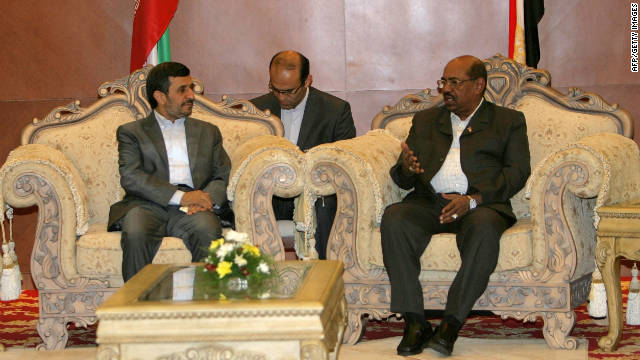Senior Al Qaeda leader Anwar al-Awlaki and another America-born militant were killed in Yemen early Friday morning by a CIA-led U.S. drone strike, marking the highest-profile takedown of terror leaders since the raid on Usama bin Laden's compound.
Fox News has learned that two Predator drones hovering above al-Awlaki's convoy fired the Hellfire missiles which killed the terror leader. According to a senior U.S. official, the operation was carried out by Joint Special Operations Command, under the direction of the CIA. A total of four people were killed in the attack.
President Obama called the strike a major "milestone" in the fight against Al Qaeda and its affiliates.
"The death of Awlaki is a major blow to Al Qaeda's most active operational affiliate," Obama said Friday. "He took the lead in planning and directing efforts to murder innocent Americans ... and he repeatedly called on individuals in the United States and around the globe to kill innocent men, women and children to advance a murderous agenda."
He said the strike is "further proof that Al Qaeda and its affiliates will find no safe haven anywhere in the world."
Al-Awlaki was a U.S.-born Islamic militant cleric who became a prominent figure with Al Qaeda in the Arabian Peninsula, the network's most active branch. He was involved in several terror plots in the United States in recent years, using his fluent English and Internet savvy to draw recruits to carry out attacks. President Obama signed an order in early 2010 making him the first American to be placed on the "kill or capture" list.
The Yemeni government and Defense Ministry announced al-Awlaki's death, without giving details. But American sources confirmed the CIA and U.S. military were behind the strike on al-Awlaki, whom one official described as a "big fish."
The strike hit a vehicle with other suspected Al Qaeda members inside, in addition to al-Awlaki. According to a U.S. senior official, the other American militant killed in the strike was Samir Khan, the co-editor of an English-language Al Qaeda web magazine called "Inspire."
Khan, in his 20s, was an American of Pakistani heritage from North Carolina. His magazine promoted attacks against U.S. targets, even running articles on how to put together explosives. In one issue, Khan wrote that he had moved to Yemen and joined Al Qaeda's fighters, pledging to "wage jihad for the rest of our lives."
The strike comes after a heavy presence of U.S. drones was spotted in the skies over the region over the last couple weeks, one source told Fox News.
The strike underscores the expanding nature of the drone program, which has migrated beyond the borders of Pakistan into Yemen, Somalia and other countries.
Yemeni security officials and local tribal leaders also said al-Awlaki was killed in an air strike on his convoy that they believed was carried out by the Americans.
Al-Awlaki would be the most prominent Al Qaeda figure to be killed since bin Laden's death in a U.S. raid in Pakistan in May. In July, U.S. Defense Secretary Leon Panetta said the Yemeni-American was a priority target alongside Ayman al-Zawahri, bin Laden's successor as the terror network's leader.
The 40-year-old al-Awlaki had been in the U.S. crosshairs since his killing was approved by President Obama in April 2010 -- making him the first American placed on the CIA "kill or capture" list. At least twice, airstrikes were called in on locations in Yemen where al-Awlaki was suspected of being, but he wasn't harmed. In May, U.S. forces were able to track his truck but were unable to take him out.
Al-Awlaki, born in New Mexico to Yemeni parents, was believed to be key in turning Al Qaeda's affiliate in Yemen into what American officials have called the most significant and immediate threat to the United States. The branch, led by a Yemeni militant named Nasser al-Wahishi, plotted several failed attacks on U.S. soil -- the botched Christmas 2009 attempt to blow up an American airliner heading to Detroit and a foiled 2010 attempt to send explosives to Chicago.
A former intelligence official said that with al-Awlaki gone, the branch "still retains a lot of capability."
But Richard Miniter, author of "Losing bin Laden," told Fox News that al-Awlaki's role will be "hard to replace."
"He understood American society very well. He understood American idioms and pop culture and how to appeal to Americans," he told Fox News. "It's very hard for them to replicate this."
Known as an eloquent preacher who spread English-language sermons on the Internet calling for "holy war" against the United States, al-Awlaki's role was to inspire and -- it is believed -- even directly recruit militants to carry out attacks.
He was not believed to be a key operational leader, but as a spokesman. His English skills gave him reach among second and third generation Muslims who may not speak Arabic.
Yemeni officials have said al-Awlaki had contacts with Umar Farouk Abdulmutallab, the accused would-be Christmas plane bomber, who was in Yemen in 2009. They say the believe al-Awlaki met with the 23-year-old Nigerian, along with other Al Qaeda leaders, in Al Qaeda strongholds in the country in the weeks before the failed bombing.
In New York, the Pakistani-American man who pleaded guilty to the May 2010 Times Square car bombing attempt told interrogators he was "inspired" by al-Awlaki after making contact over the Internet.
Al-Awlaki also exchanged up to 20 emails with U.S. Maj. Nidal Malik Hasan, alleged killer of 13 people in the Nov. 5, 2009, rampage at Fort Hood. Hasan initiated the contacts, drawn by al-Awlaki's Internet sermons, and approached him for religious advice.
Al-Awlaki has said he didn't tell Hasan to carry out the shootings, but he later praised Hasan as a "hero" on his Web site for killing American soldiers who would be heading for Afghanistan or Iraq to fight Muslims. The cleric similarly said Abdulmutallab was his "student" but said he never told him to carry out the airline attack.
In a statement, the Yemeni government said al-Awlaki was "targeted and killed" 5 miles from the town of Khashef in the Province of al-Jawf. The town is located 87 miles east of the capital Sanaa.
The statement says the operation was launched on Friday around 9:55 a.m. It gave no other details.
The Yemeni Defense Ministry also reported the death, without elaborating, in a mobile phone SMS message.
Top U.S. counter terrorism adviser John Brennan says such cooperation with Yemen has improved since the political unrest there. Brennan said the Yemenis have been more willing to share information about the location of Al Qaeda targets, as a way to fight the Yemeni branch challenging them for power. Other U.S. officials say the Yemenis have also allowed the U.S. to fly more armed drone and aircraft missions over its territory than ever previously, trying to use U.S. military power to stay in power.
Fox News' Catherine Herridge and Mike Levine and The Associated Press contributed to this report.





_1227_-_Jolo_3.jpg)
















